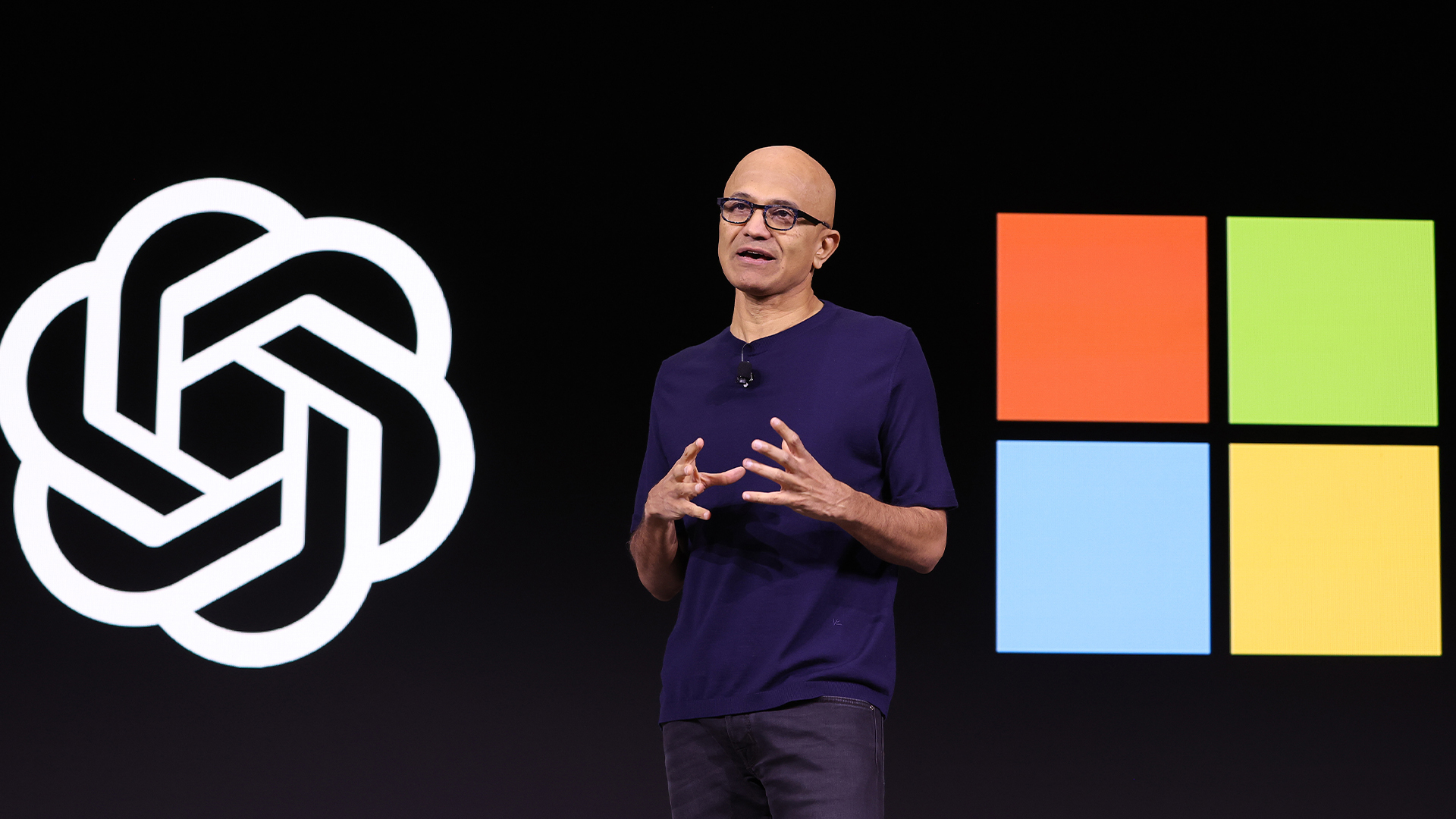Microsoft delivers statement of intent with AWS hire
Puneet Chandok joins Microsoft during a period of bullish growth in the Asia region


Microsoft has appointed former AWS executive Puneet Chandok as corporate VP for India and South Asia as the company ramps up activity in the region.
In a statement yesterday, Microsoft confirmed the appointment, revealing that Chandok will begin duties on 1 September and assume operational responsibilities from Anant Maheshwari.
As part of his new role, Microsoft said Chandok will “oversee the integration of Microsoft’s businesses across South Asia, including Bangladesh, Bhutan, Maldives, Nepal, and Sri Lanka” to further boost the company’s presence in the region.
Chandok’s appointment will also enable Microsoft to continue “deepening its focus on key industries” alongside driving adoption and development of generative AI in the region.
“We are delighted to announce that Puneet will be joining Microsoft India,” said Ahmed Mazhari, president of Microsoft Asia.
“Puneet has a strong track record of building and growing technology businesses and leveraging technology to deliver impact and change. As we embrace an AI-led future, Puneet’s leadership will play a vital role in ensuring Microsoft’s ongoing success in South Asia.”
Capitalizing on market growth
Chandok’s appointment could mark a serious statement of intent for Microsoft in India and South Asia.
Get the ITPro daily newsletter
Sign up today and you will receive a free copy of our Future Focus 2025 report - the leading guidance on AI, cybersecurity and other IT challenges as per 700+ senior executives
Having formerly served as AWS president for India and South Asia, Chandok led the division during a period of expansion in the region, resigning abruptly around the same time that the hyperscaler announced an ambitious investment package in its India operations.
RELATED RESOURCE

Automate personalization with AWS
Leverage the benefits of personalization and automation throughout every stage of the buyer’s journey.
Microsoft has been vocal on its South Asia intentions in recent months, with CEO Satya Nadella stating last year that the company is “bullish” on expansion in the region.
“We’re very, very bullish about what’s happening in Asia,” Nadella, told CNBC in a November interview. Nadella went on to describe India as a “massive growth market” for the tech giant due to an accelerating demand for the development of cloud native applications in the country.
At present, Microsoft boasts three cloud regions in India, compared to AWS and Google Cloud which each have two. Its current phase of expansion will see the establishment of three new data centers through a $1.96 billion investment in Hyderabad.
Chandok certainly has big boots to fill in this new role, if Microsoft’s activity in recent years is anything to go by. Under Maheshwari’s seven-year leadership, the Asia division has performed well and expanded its footprint in the region.
In 2021, the company embarked on an ambitious expansion of its operations in South Asia and the broader APAC region, announcing the addition of several new cloud regions across four markets in Asia, including Indonesia, Taiwan, and Malaysia.
However, analysis from Synergy Research Group last year showed that while the tech giant has made significant inroads across Asia, the firm still sits behind AWS and Alibaba with regard to its total market share in the broader APAC region.
Given Chandok’s previous role in AWS’ regional expansion and maintaining its positioning in the market, Microsoft could view the appointment as a means to capitalize on his experience to further boost its ambitions in this emerging space.
Chandok’s leadership credentials and background in the region bode well for Microsoft’s potential long-term goals in bolstering its Asian presence.
IDC research shows that the South Asian public cloud services market will grow by around 23% between 2022 and 2026 as the regional market continues to mature and grow.
In an effort to pounce on this expected growth, all three hyperscalers have been expanding their footprint in the region. In addition to its India investment, AWS committed $6 billion to expanding its operations in Malaysia in March this year.
Similarly, In August last year, Google Cloud unveiled plans to establish three new cloud regions in the market, with Malaysia and Thailand both earmarked as sites for expansion.
But while competition between the three hyperscalers continues to rumble on, they’re also facing stiff competition from Chinese competitors.
Earlier this year, Alibaba announced a significant reduction in its cloud costs in an attempt to lure customers away from the western big hitters.
Analysis from the Wall Street Journal found that this price reduction strategy formed part of a broader attempt by Chinese firms to undercut competition, with some offering prices between 20” to 40% lower than their American counterparts.

Ross Kelly is ITPro's News & Analysis Editor, responsible for leading the brand's news output and in-depth reporting on the latest stories from across the business technology landscape. Ross was previously a Staff Writer, during which time he developed a keen interest in cyber security, business leadership, and emerging technologies.
He graduated from Edinburgh Napier University in 2016 with a BA (Hons) in Journalism, and joined ITPro in 2022 after four years working in technology conference research.
For news pitches, you can contact Ross at ross.kelly@futurenet.com, or on Twitter and LinkedIn.
-
 Bigger salaries, more burnout: Is the CISO role in crisis?
Bigger salaries, more burnout: Is the CISO role in crisis?In-depth CISOs are more stressed than ever before – but why is this and what can be done?
By Kate O'Flaherty Published
-
 Cheap cyber crime kits can be bought on the dark web for less than $25
Cheap cyber crime kits can be bought on the dark web for less than $25News Research from NordVPN shows phishing kits are now widely available on the dark web and via messaging apps like Telegram, and are often selling for less than $25.
By Emma Woollacott Published
-
 ‘Europe could do it, but it's chosen not to do it’: Eric Schmidt thinks EU regulation will stifle AI innovation – but Britain has a huge opportunity
‘Europe could do it, but it's chosen not to do it’: Eric Schmidt thinks EU regulation will stifle AI innovation – but Britain has a huge opportunityNews Former Google CEO Eric Schmidt believes EU AI regulation is hampering innovation in the region and placing enterprises at a disadvantage.
By Ross Kelly Published
-
 Microsoft promises more AI spending despite cloud cost stumble
Microsoft promises more AI spending despite cloud cost stumbleNews Microsoft recorded revenue and earnings growth in its latest quarterly results, but higher than expected costs in cloud and AI raised investor concerns.
By Nicole Kobie Published
-
 SoftwareOne to acquire Crayon in $1.4 billion merger deal
SoftwareOne to acquire Crayon in $1.4 billion merger dealNews The merged firm will be 'uniquely positioned' to capitalize on a $150 billion market
By Emma Woollacott Published
-
 Amazon's RTO mandate could spark a talent exodus
Amazon's RTO mandate could spark a talent exodusNews A survey of Amazon staff suggests plenty remain unhappy about returning to the office next year
By Nicole Kobie Published
-
 Google wants regulators to break up Microsoft's OpenAI deal
Google wants regulators to break up Microsoft's OpenAI dealNews Google has already been nipping at Microsoft’s heels in the European cloud market over competition concerns
By George Fitzmaurice Published
-
 How Mondra is targeting food net zero using Microsoft Azure cloud computing
How Mondra is targeting food net zero using Microsoft Azure cloud computingCase study Combining predictive AI and OpenAI models, the firm aims to shine a light on hard-to-pinpoint Scope 3 emissions figures
By Rory Bathgate Published
-
 Regulatory uncertainty is holding back AI adoption – here’s what the industry needs going forward
Regulatory uncertainty is holding back AI adoption – here’s what the industry needs going forwardAnalysis A lack of clarity on the legal side is hampering digital ambitions in Europe
By George Fitzmaurice Published
-
 Microsoft facing FTC antitrust probe over cloud, AI competition concerns
Microsoft facing FTC antitrust probe over cloud, AI competition concernsNews Microsoft could be set for another antitrust battle, this time focused on cloud and AI
By Nicole Kobie Published